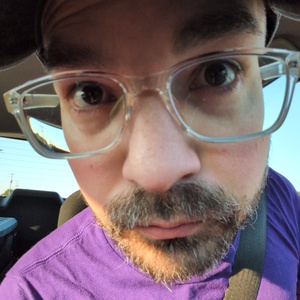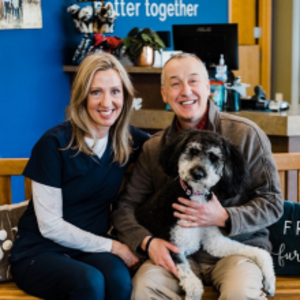- Book Lover 📚
Nicholas Monak
"To do better than yesterday."
POINTS TOTAL
- 0 TODAY
- 0 THIS WEEK
- 1,320 TOTAL
participant impact
-
UP TO2.0low-plastic mealsconsumed
-
UP TO83plastic itemsavoided
-
UP TO1.0plastic footprintcalculated
-
UP TO10bags of littercollected
-
UP TO2.0advocacy actionscompleted
-
UP TO1.0community eventhosted or attended
-
UP TO21individualsrecognized for sustainability
-
UP TO8.0ideasshared
-
UP TO293minutesspent learning
Nicholas's actions
Level Up: Influence Friends and Family
Keep my reusable kit with me and model it in public
My everyday choices can influence others. I will carry and use a reusable kit in public spaces, modeling plastic-reducing behaviors and showing that small changes are possible.
Level Up: Influence Friends and Family
Prepare a low-plastic meal with a friend or family member
Reducing plastic can be easier — and more fun — when shared. I will plan and prepare a meal with friends or family that minimizes single-use packaging and plastic waste.
Level Up: Influence Friends and Family
Pack a low or no-plastic lunch and talk about it with others
Food packaging is a major source of plastic. I will pack a lunch with little or no plastic and use it as a conversation starter with coworkers, classmates, or friends to share tips and inspire change.
Level Up: Influence Friends and Family
Celebrate someone else’s plastic-free effort
Positive reinforcement goes a long way in fostering sustainable change. I will celebrate someone’s effort to reduce plastic — whether big or small — by acknowledging their success in the feed or on social media and encouraging them to keep going.
Lead the Way: Shape Your Community
Participate in or organize a community clean up
Plastic pollution is visible in many communities. I will take part in or organize a cleanup event to remove litter, raise awareness, and spark conversations about how plastic ends up in our environment.
Lead the Way: Shape Your Community
Recommend a documentary, podcast, or article about plastic to others
People are more likely to take action when someone they trust makes a recommendation. I will share a documentary, podcast, or article that helped me understand the impact of plastic to spark curiosity, conversation, and action in others.
First Steps: Start with You
Understand plastic labels
Those recycling numbers and symbols can be confusing. I will spend 5 minutes learning what different plastic labels mean, including what can and can’t be recycled, to make more informed choices when I shop.
First Steps: Start with You
Swap one product for a refillable or plastic-free option
Even small swaps can add up to big impact. I will replace one product I use regularly — like soap, cleaning spray, or snacks — with a refillable or plastic-free version.
Level Up: Influence Friends and Family
Prep a reusable kit for on-the-go
Having reusables ready and integrated into your daily routine can help you avoid single-use plastic while out and about. I will put together a kit with items like a mug, water bottle, utensils, or tote bag to take with me when I leave the house.
First Steps: Start with You
Estimate My Plastic Consumption
Understanding my plastic footprint is a powerful first step toward making change. I will complete a short online plastic calculator, like the one from rePurpose Global, to estimate my annual plastic use and explore ways to reduce it.
Level Up: Influence Friends and Family
Create a reminder system or routine for remembering reusables
Even the best intentions can be forgotten in the rush of daily life. I will create a system — like a note on the door or a checklist — to help me and others in my household remember to grab our reusables before we go.
Level Up: Influence Friends and Family
Visit a local recycling center, landfill, or transfer station
Seeing where waste goes can change how we think about what we throw away. I will visit a local facility to learn more about the waste stream in my community and share what I learn with others and in the feed.
Change the Game: Shift Systems and Policies
Support a plastic or climate advocacy campaign
Advocacy campaigns can drive real change by amplifying public support. I will find and support a campaign — through a donation, signature, or share — that’s working to reduce plastic pollution or address the climate impacts of plastic.
First Steps: Start with You
Find out why plastic recycling isn’t working as we expect and where plastics end up
Many of us recycle with good intentions, but most plastic doesn’t get recycled. I will spend 10 minutes learning why plastic recycling falls short and what really happens to plastic waste.
First Steps: Start with You
Choose secondhand or a recycled product for my next purchase
Buying recycled or secondhand products helps close the loop and reduces demand for new plastic. I will look for and purchase a product made from recycled materials or choose a secondhand option the next time I shop to keep valuable resources in use longer.
Lead the Way: Shape Your Community
Teach or learn a skill to extend the life of a product I have
Learning or sharing repair skills can keep useful items in use and out of the landfill. I will teach or learn a skill to extend the life of a product — like sewing, electronic repair, or furniture restoration — and share what I did with my community, workplace, or group to encourage others to do the same.
Participant Feed
-
 Nicholas Monak 7/31/2025 6:21 PM
Nicholas Monak 7/31/2025 6:21 PM- Book Lover 📚
Plastic is still on my mind. -
 Nicholas Monak 7/27/2025 6:15 PM
Nicholas Monak 7/27/2025 6:15 PM- Book Lover 📚
Today, I learned about plastic bag recycling. There's not a big market for it but it does divert bags from the landfill and potential environmental damage. I can't even recall if my local Kroger has paper bags available. -
 Nicholas Monak 7/25/2025 7:05 PM
Nicholas Monak 7/25/2025 7:05 PM- Book Lover 📚
We went out to eat today at a place usually fill a small plastic cup with soy sauce. I picked it up, put it down, put the soy sauce on my sushi directly. -
 Nicholas Monak 7/23/2025 6:43 PM
Nicholas Monak 7/23/2025 6:43 PM- Book Lover 📚
For work we were all given a clear plastic bag to use at a stadium you couldn't bring other bags to. My wife found a perfect reuse for it to hold items that needed a long term home.-
 Stacey Stamps 7/23/2025 6:49 PM
Stacey Stamps 7/23/2025 6:49 PM- Pet Parent 🐾
-
 Nicholas Monak 7/23/2025 6:36 PM
Nicholas Monak 7/23/2025 6:36 PM- Book Lover 📚
We had a power sweeper stop working at home today. I can't check off that I fixed it yet. But I plan on doing it in the next few days. -
 Nicholas Monak 7/21/2025 4:57 PM
Nicholas Monak 7/21/2025 4:57 PM- Book Lover 📚
I cleaned up some random plastic pieces from the ground today and saved two plastic bags from being used. -
 Nicholas Monak 7/20/2025 6:25 PM
Nicholas Monak 7/20/2025 6:25 PM- Book Lover 📚
I really need to I figure out how to buy some bulk foods that aren't in plastic. -
 Nicholas Monak 7/18/2025 4:52 PM
Nicholas Monak 7/18/2025 4:52 PM- Book Lover 📚
Very sad moment today finding a stack of plastic cups with coffee grounds on the outside. They didn't even get to live their life. -
REFLECTION QUESTION
 Level Up: Influence Friends and FamilyWhat did you learn from your visit, and how did it change the way you see your household waste? Post a pic from your visit in the feed!
Level Up: Influence Friends and FamilyWhat did you learn from your visit, and how did it change the way you see your household waste? Post a pic from your visit in the feed!
 Nicholas Monak 7/17/2025 3:20 PMI visited a couple recycling facilities on YouTube today. They are incredible places! I learned that recycling some of the wrong things can not only contaminate other things, but also put workers in danger. There are plenty of people hand sorting throughout the process.
Nicholas Monak 7/17/2025 3:20 PMI visited a couple recycling facilities on YouTube today. They are incredible places! I learned that recycling some of the wrong things can not only contaminate other things, but also put workers in danger. There are plenty of people hand sorting throughout the process. -
REFLECTION QUESTION
 Lead the Way: Shape Your CommunityHow does working with others to clean up your community make you feel? What kinds of plastic waste did you find the most, and what does that say about local habits or systems?
Lead the Way: Shape Your CommunityHow does working with others to clean up your community make you feel? What kinds of plastic waste did you find the most, and what does that say about local habits or systems?
 Nicholas Monak 7/16/2025 5:09 PM
Nicholas Monak 7/16/2025 5:09 PM- Book Lover 📚
Well we ended up pulling invasive plants for two hours at Eagle Marsh. Black mustard to be specific. The good news is I didn't come across any plastic or trash.